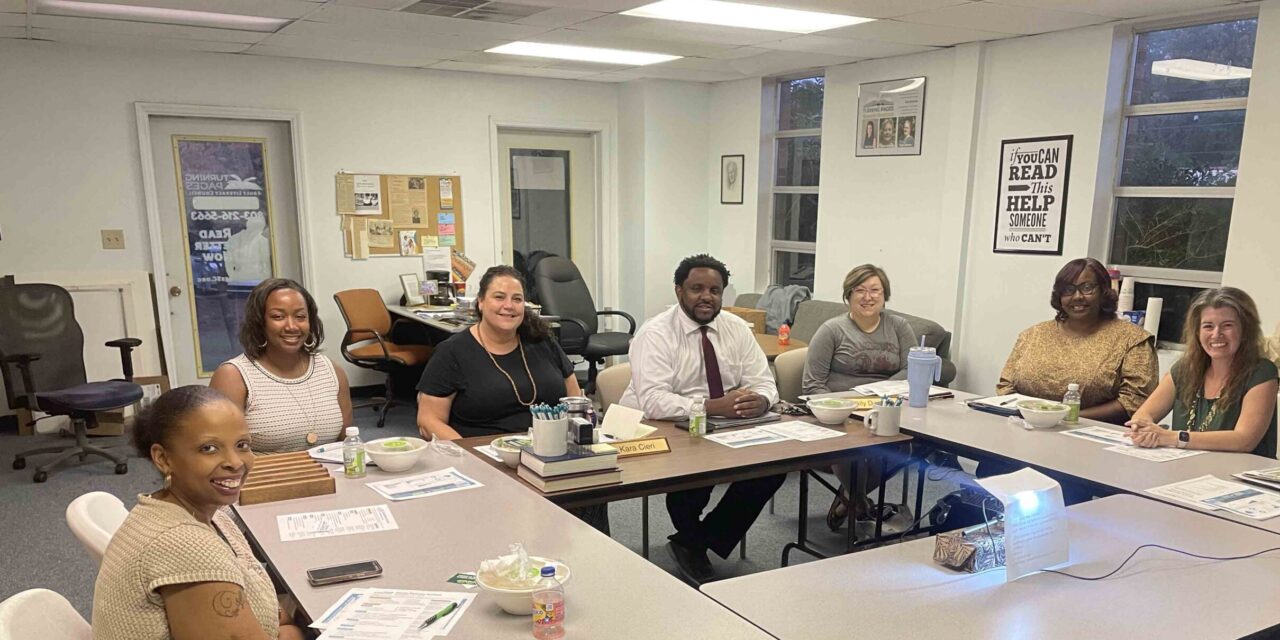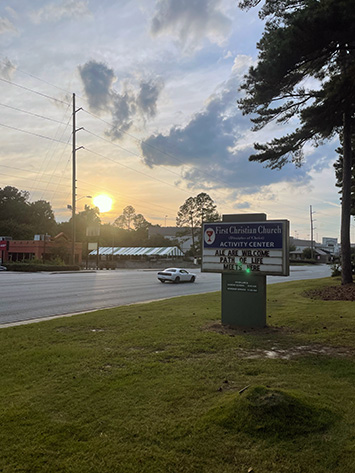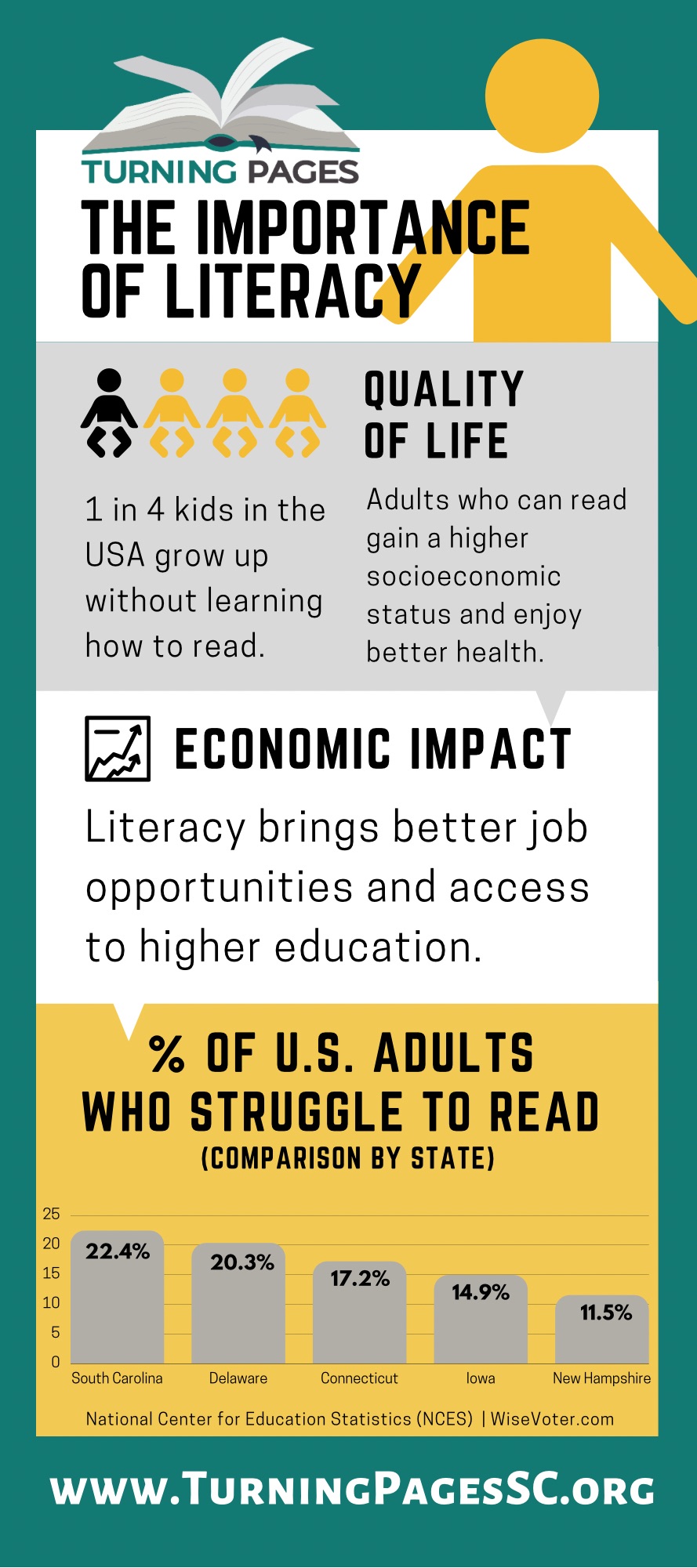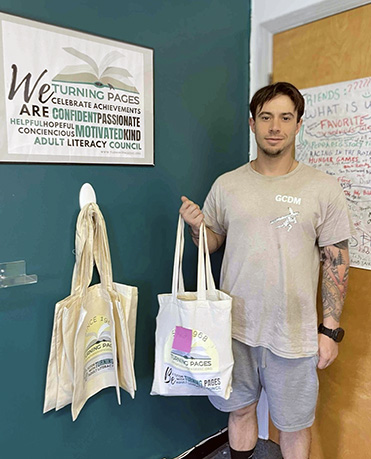Turning Pages SC board members meet the third Wednesday of every month. (Photo by Langston Brooks/Carolina News and Reporter)
One group of students in the Midlands can meet their reading tutors anywhere.
They can gather in a public park, public library or even in churches.
But these students have no homework, exams or even class. They are South Carolina adults who never received the opportunity to increase their reading level.
About 22.4% of South Carolinian adults struggle to read, according to the National Center for Education Statistics.
That means almost 800,000 adult South Carolinians can’t read at a fully functional level, said Lisa Cole, interim executive director of Turning Pages SC.
The Midlands literacy group is trying to change the narrative through different programs and curricula aimed at helping the troubled demographic.
Founded in 1968, Turning Pages is committed to increasing the statewide literacy rate through personalized, one-on-one tutoring free of charge to in the Midlands area.
“Everybody from 18-year-olds to 70-year-olds – I mean it is just heartbreaking that people fell through the cracks and didn’t get the same opportunities” as others, said Kara Cieri, a Turning Pages board member.
Two of the organization’s students recently finished Turning Pages’ “24 Hours to Success” program, where students over a six-month period pair with a volunteer tutor at a library to read one hour a week for 24 weeks.
“Our second reader who just finished our program started at a sixth-grade, second-month level but finished at a seventh-grade, eight-month level,” said Cole.“So she grew almost two years’ worth of skills in our program.”
The program is called “24 Hours to Success” based on research that it takes about 24 to 30 hours to move the needle on reading, Cole said.
Cole has worked to improve the influence of the organization, tripling the board size while attracting more than 75 new volunteers, according to the organization’s website.
“When they see that growth and they express more confidence about reading, that is what causes a true impact in Columbia,” Cole said.
The impact of Turning Pages has been noticed throughout the organization’s time in the Midlands, with more than 1,700 tutors trained and 6,000 learners taught, according to the organization’s website.
Turning Pages works because it has a flexible approach to learning that makes people feel comfortable, a volunteer tutor said.
“I want to work with Turning Pages because I feel this organization aligns with my core values,” said tutor Darlene Granite. “I know there isn’t a ‘one size fits all’ approach to teaching and I want to be in an environment where all students can feel safe and learn in the best way that suits them.”
“The more people we get literate, the better our state gets as a whole,” Cole said. “I would love to see us as a national model for a literacy council.”
The organization received a $1,000 donation from Columbia Sertoma Club earlier this September.
But said the organization can never become stagnant, said board member Austin Floyd.
“I would love to see statewide funding to Turning Pages so that we can continue to be effective on a larger scale,” Floyd said.“ I hope that people refer to Turning Pages just like if you need some sporting goods, you know where to go.”
To learn more about Turning Pages or to become involved, go to turningpages.org for information about volunteering as a tutor as well as historical facts about the organization.





